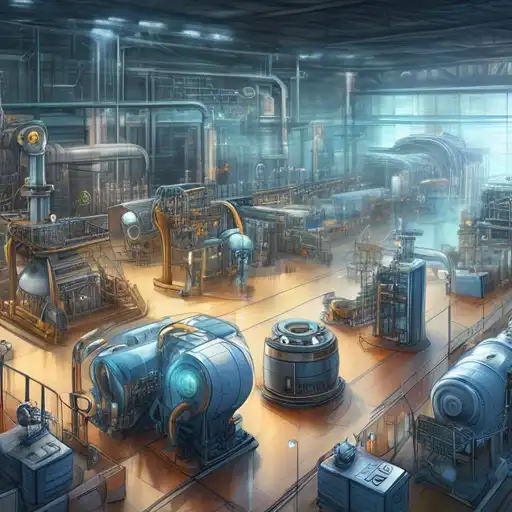Revolutionizing Industrial Automation: The IoT Effect
The Internet of Things (IoT) is transforming industrial automation in unprecedented ways. By enabling machines and devices to communicate and operate autonomously, IoT is paving the way for smarter, more efficient manufacturing processes. This article explores the profound impact of IoT on industrial automation, highlighting key benefits and challenges.
Understanding IoT in Industrial Automation
IoT refers to the network of physical devices connected to the internet, collecting and sharing data. In industrial automation, IoT technologies facilitate real-time monitoring, predictive maintenance, and enhanced operational efficiency. This integration is a cornerstone of the fourth industrial revolution, or Industry 4.0.
Key Benefits of IoT in Industrial Automation
- Enhanced Efficiency: IoT devices optimize production processes, reducing downtime and increasing output.
- Predictive Maintenance: Sensors predict equipment failures before they occur, minimizing unplanned downtime.
- Energy Savings: Smart systems adjust energy use based on real-time demand, significantly reducing costs.
- Improved Safety: IoT-enabled devices monitor hazardous conditions, protecting workers from potential dangers.
Challenges of Implementing IoT in Industrial Automation
Despite its benefits, integrating IoT into industrial automation presents challenges. These include cybersecurity risks, high initial investment costs, and the need for skilled personnel to manage and interpret IoT data.
The Future of IoT in Industrial Automation
The future of industrial automation lies in further IoT integration. Advances in AI and machine learning will enhance IoT capabilities, leading to fully autonomous factories. As technology evolves, the potential for IoT in industrial automation is limitless.
For more insights into the future of manufacturing, explore our article on Smart Manufacturing Trends.
Conclusion
IoT is revolutionizing industrial automation, offering unparalleled efficiency, safety, and cost savings. While challenges exist, the benefits far outweigh the drawbacks, making IoT an indispensable part of modern manufacturing. As we move towards Industry 4.0, the role of IoT in industrial automation will only grow, reshaping the future of production.
